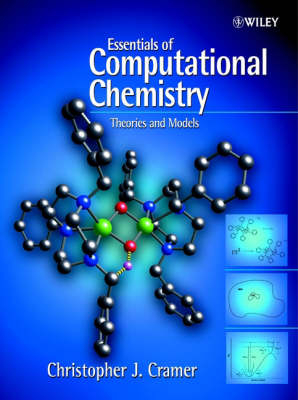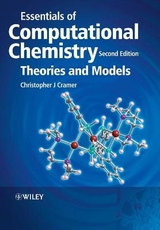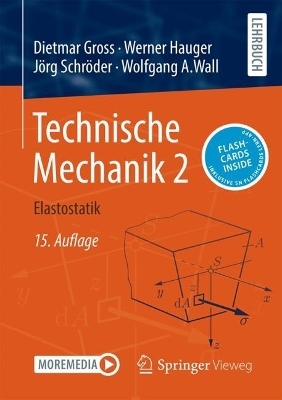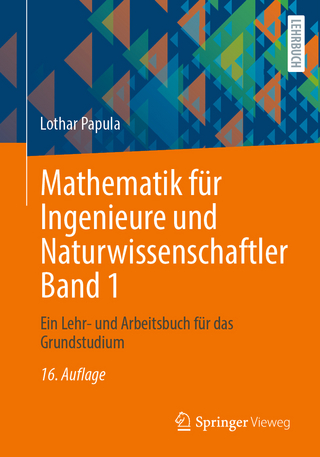
Essentials of Computational Chemistry
Theories and Models
Seiten
2002
John Wiley & Sons Ltd (Verlag)
978-0-471-48552-0 (ISBN)
John Wiley & Sons Ltd (Verlag)
978-0-471-48552-0 (ISBN)
- Titel erscheint in neuer Auflage
- Artikel merken
Zu diesem Artikel existiert eine Nachauflage
Delivered in an approachable and accessible way, "Essentials of Computational Chemistry" describes the theory and concepts that underpin computational chemistry.
Throughout chemistry, computational techniques are becoming increasingly important. Problem solving and modelling is quickly achievable but as the power of computers increases so does the complexity of the tasks and the speed at which they are solved. A basic understanding of the theory and concepts underpinning computational chemistry is therefore essential to all chemical science students, and Essentials of Computational Chemistry: Theory and Models delivers a thorough insight in a readable and approachable manner. Accessible as a text to advanced undergraduate students as well as graduate students Emphasises the basic concepts and applications rather than theory and mathematics Firmly places the subject in context, including many examples and applications Includes coverage and examples from inorganic, organic and biological chemistry and covers quantum mechanical and classical mechanical models Includes case histories that serve as an ideal basis for classroom discussion Delivers information in a readable and approachable manner
Throughout chemistry, computational techniques are becoming increasingly important. Problem solving and modelling is quickly achievable but as the power of computers increases so does the complexity of the tasks and the speed at which they are solved. A basic understanding of the theory and concepts underpinning computational chemistry is therefore essential to all chemical science students, and Essentials of Computational Chemistry: Theory and Models delivers a thorough insight in a readable and approachable manner. Accessible as a text to advanced undergraduate students as well as graduate students Emphasises the basic concepts and applications rather than theory and mathematics Firmly places the subject in context, including many examples and applications Includes coverage and examples from inorganic, organic and biological chemistry and covers quantum mechanical and classical mechanical models Includes case histories that serve as an ideal basis for classroom discussion Delivers information in a readable and approachable manner
What are Theory, Computation and Modeling?; Molecular Mechanics; Simulations of Molecular Ensembles; Foundations of Molecular Orbital Theory; Semiempirical Implementations of Molecular Orbital Theory; Ab Initio Implementations of Hartree-Fock Molecular Orbital Theory; Including Electron Correlation in Molecular Orbital Theory; Density Functional Theory; Charge Distribution and Spectroscopic Properties; Thermodynamic Properties; Implicit Models for Condensed Phases; Explicit Models for Condensed Phases; Hybrid Quantal/Classical Models; Excited Electronic States; Adiabatic Reaction Dynamics; Appendix A Acronym Glossary; Appendix B Symmetry and Group Theory; Appendix C Spin Algebra; Appendix D Orbital Localization
| Erscheint lt. Verlag | 18.3.2002 |
|---|---|
| Zusatzinfo | Ill. |
| Verlagsort | Chichester |
| Sprache | englisch |
| Maße | 168 x 242 mm |
| Gewicht | 930 g |
| Einbandart | Paperback |
| Themenwelt | Mathematik / Informatik ► Mathematik ► Angewandte Mathematik |
| Naturwissenschaften ► Chemie | |
| ISBN-10 | 0-471-48552-7 / 0471485527 |
| ISBN-13 | 978-0-471-48552-0 / 9780471485520 |
| Zustand | Neuware |
| Informationen gemäß Produktsicherheitsverordnung (GPSR) | |
| Haben Sie eine Frage zum Produkt? |
Mehr entdecken
aus dem Bereich
aus dem Bereich
Buch | Softcover (2024)
Springer Vieweg (Verlag)
37,99 €
Buch | Softcover (2024)
Springer Vieweg (Verlag)
44,99 €



